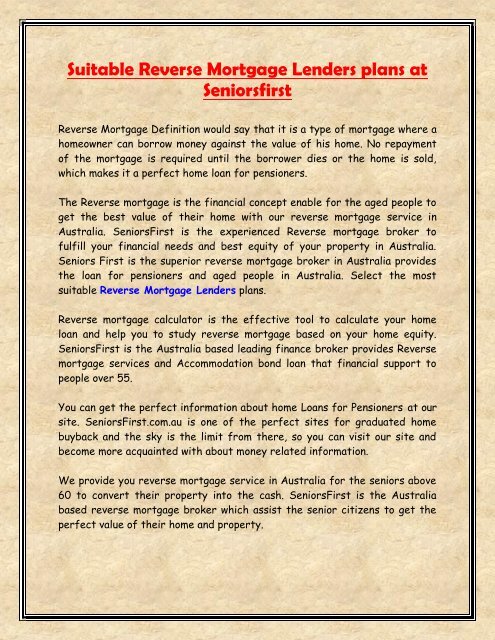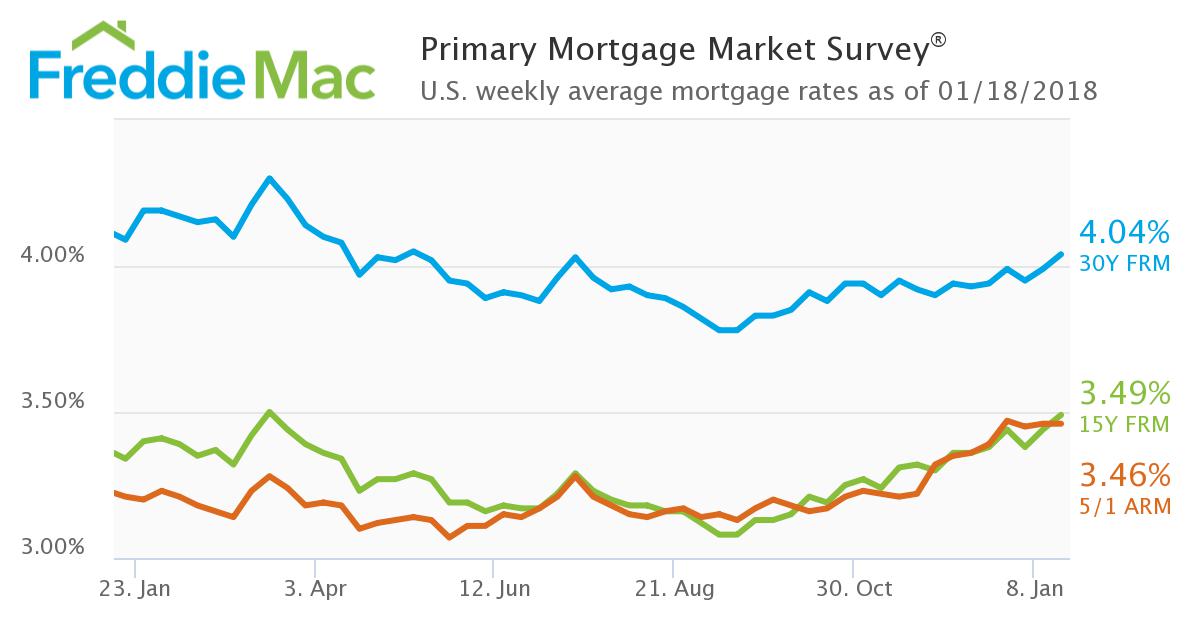Getting a reverse home loan is a huge choice, since you may not have the ability to get out of this loan without selling your house to settle the debt. You likewise need to thoroughly consider your alternatives to prevent utilizing up all the equity you have actually developed in your house.
Reverse mortgages typically are not used for trips or other "enjoyable" things. The fact is that many customers utilize their loans for immediate or pressing financial needs, such as settling their existing mortgage or other debts. Or they may think about these loans to supplement their month-to-month earnings, so they can manage to continue living in their own home longer. Adjustables have five payment alternatives: Set regular monthly payments so long as you or your eligible partner remain in the home Set regular monthly payments for a fixed duration rci timeshare Unspecified payments when you need them, up until you have actually exhausted your funds A credit line and set monthly payments for as long as you or your qualified spouse newton group timeshare complaints live in the home A credit line and set month-to-month timeshare exit attorneys payments for a fixed duration of your selecting To use for a reverse home mortgage, you need to satisfy the following FHA requirements: You're 62 or older You and/or an eligible spouse who must be named as such on the loan even if she or he is not a co-borrower live in the house as your primary house You have no overdue federal debts You own your house outright or have a substantial amount of equity in it You go to the compulsory therapy session with a house equity conversion home mortgages (HECM) counselor approved by the Department of Real Estate and Urban Advancement Your home satisfies all FHA property standards and flood requirements You continue paying all residential or commercial property taxes, house owners insurance coverage and other family upkeep fees as long as you reside in the home Before providing a reverse home loan, a lending institution will examine your credit rating, verify your regular monthly earnings versus your month-to-month financial obligations and purchase an appraisal on your house.
Almost all reverse home loans are released as home equity conversion home loans (HECMs), which are guaranteed by the Federal Housing Administration. HECMs feature strict loaning standards and a loan limitation. If you think a reverse home mortgage may be ideal for you, discover an HECM therapist or call 800-569-4287 toll-free to find out more about this funding option.
A reverse mortgage enables house owners, particularly those who are of retirement age, to borrow against the equity in their houses. One benefit of a reverse home mortgage is that lenders don't normally have minimum income or credit report requirements, which can assist property owners wanting to cover living expenditures. But a reverse home mortgage includes several disadvantages, such as upfront and ongoing expenses, a variable rates of interest, an ever-rising loan balance and a decrease in home equity.
As its name suggests, a reverse mortgage is the reverse of a traditional home loan. With a reverse mortgage, you don't obtain money to purchase a home; rather, you use the equity of your house to take out a loan. A reverse home mortgage is suggested for homeowners who have paid off their home mortgage or who have accumulated a lot of house equity.
One of the upsides of a reverse home mortgage is that lenders characteristically do not enforce earnings or credit requirements. Profits from a reverse mortgage are usually tax-free, and not a cent of the loan needs to be paid back if the customer stays in the home, pays real estate tax and property owners insurance coverage, and covers maintenance expenses.
The Only Guide to What Is Required Down Payment On Mortgages
Those scenarios trigger the requirement for you, your spouse or your estate to pay back the loan. Three type of reverse mortgages are readily available: Single-purpose reverse home loan: These loans, offered from federal government companies and not-for-profit groups, are designed for simply one purpose detailed by the lending institution. For example, somebody may use profits from a single-purpose reverse mortgage to tackle a home enhancement project or pay real estate tax.
Proprietary reverse home mortgage: Exclusive reverse mortgages, available from private loan providers, provide more versatility than single-purpose reverse home loans. Unlike single-purpose reverse mortgages, exclusive reverse mortgages generally do not come with constraints on how you can invest the profits. This choice can be specifically appealing to owners whose homes carry high worths and who wish to obtain a substantial sum of cash - what are the different types of mortgages.
An HECM, insured by the Federal Real Estate Administration (FHA), is the most typical type of reverse mortgage. Since 2020, the HECM loaning limit was $765,600. Although proceeds from an HECM can be used for any function, some homeowners may not qualify due to certain constraints. These loans are available only to house owners who are at least 62 years of ages.

Those include:: Comparable to a traditional home loan, a loan provider usually charges several charges when you get a reverse mortgage. Those can include a home loan insurance coverage premium, an origination cost, a maintenance charge and third-party fees. For an HCEM, the initial mortgage insurance coverage premium is 2% of the loan amount; on top of that, you'll pay a yearly home loan premium of 0.
You'll also pay an origination charge of $2,500 or 2% of the first $200,000 of your home worth (whichever is greater), plus 1% of the quantity exceeding $200,000; origination fees can not surpass $6,000.: Most reverse mortgages have variable interest rates, indicating the interest rate that determines just how much is included to your loan balance monthly fluctuates throughout the life of the loan.: Interest paid on a reverse home mortgage can't be deducted on your yearly income tax return till the loan is paid off.: A reverse home mortgage can siphon equity from your house, leading to a lower property worth for you and your heirs.: If your home isn't in great shape, you might require to make repair work before you can get approved for a reverse mortgage.: Aside from when a house owner passes away or vacates, the reverse mortgage may require to be repaid earlier than expected if the owner fails to pay real estate tax or homeowners insurance, or if the owner isn't keeping up with house maintenance.

In addition to its drawbacks, there are 3 examples of when a reverse mortgage may be absolutely out of the question: You wish to move relatively quickly. Timing is necessary when it comes to securing a reverse home loan. If you're seeking to relocate in the next couple of years, it might not be a good idea to saddle yourself with a reverse home mortgage.